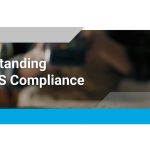
PCI DSS Compliance Services
Professional PCI DSS compliance services and consultancy
Ensuring Secure Card Payment Transactions
Protect sensitive payment data and uphold your organisation’s reputation with Akita’s PCI DSS consultancy services.
Organisations that process, store or transmit bank payments should be regularly checking on the state of their security. More than a compliance best practice, PCI DSS compliance is critical for identifying vulnerabilities and potential breaches in your systems, PCI scanning services play a pivotal role in safeguarding your business data.
Akita provides detailed scanning and assessments of PCI DSS security, as well as support and remediation measures to address vulnerabilities.

PCI Compliance SCANNING LONDON
What Is PCI DSS Compliance?
The PCI DSS or Payment Card Industry Data Security Standard is a set of security standards designed by five major credit card companies. It ensures organisations that handle credit card transactions maintain a secure environment to protect cardholder data from theft and fraud.
The Payment Card Industry Security Standards Council or PCI SSC (made up of the five major credit card companies) established PCI DSS as a comprehensive framework to address the various aspects of cardholder data security. The standard encompasses requirements for security management, policies, procedures, network architecture, software design, and other critical protective measures.

PCI DSS Compliance London & UK
The Importance Of PCI DSS Compliance For UK Businesses
Performing PCI scans is crucial for ensuring the security of payment card data and maintaining a trustworthy environment for conducting financial transactions. The requirement for PCI scanning is set out in the PCI DSS guidelines, and is vital for:

Protecting Reputation:
A data breach can severely damage reputation. Customers trust organisations with their sensitive payment card information, and if that trust is violated, it can lead to a permanent loss of confidence in your brand. By maintaining PCI DSS compliance, organisations demonstrate their commitment to protecting customer data, which enhances their reputation as a trustworthy entity.

Securing Customer Loyalty:
Having long term, loyal customers is invaluable to continued success. When customers know that their payment card information is safe with an organisation, they’re more likely to continue buying from them. PCI DSS compliance helps to build trust and loyalty to form long-term relationships with buyers.

Ensuring Business Growth:
Data breaches can have significant financial repercussions, including legal fees, fines, and loss of revenue. By preventing breaches through PCI DSS compliance, organisations can avoid these costs and allocate resources towards growth initiatives instead. Additionally, compliance with PCI DSS standards opens doors to partnerships and collaborations with other businesses that prioritise data security, further facilitating business growth.

Enhancing Security Practices:
PCI DSS compliance goes beyond safeguarding payment card data; it also promotes overall cyber security best practices. By implementing the necessary security measures outlined in the standard, organisations strengthen their overall security posture, reducing the risk of data breaches and cyber attacks. This proactive approach to security not only protects payment card data but also safeguards sensitive information across all aspects of the business, enhancing overall resilience against cyber threats.
Performing regular PCI scans is a proactive approach to identifying vulnerabilities and ensuring that appropriate security measures are in place to protect payment card data. By complying with the PCI standards and conducting these scans you demonstrate your commitment to data security and maintain the trust of your customers and financial partners.

Do I Need To Be PCI Compliant In The UK?
Organisations in the UK that handle payment card transactions are required to comply with PCI DSS standards. This compliance is not mandated by UK law but is instead enforced by payment card brands such as Visa, Mastercard, American Express, and others. These card brands require merchants, service providers, and other entities that process, store, or transmit cardholder data to comply with PCI DSS standards to ensure the security of payment card information.
In addition to the requirements set by payment card brands, UK businesses may also be subject to regulatory requirements related to data protection and cyber security. For example, the General Data Protection Regulation (GDPR), which applies to businesses that process personal data of individuals in the European Union and the UK, includes provisions related to the security of personal data.
While PCI DSS compliance focuses specifically on payment card data security, adhering to its standards can align with broader data protection requirements under regulations like the GDPR.
While not a legal requirement, the consequences of non-compliance can be severe. In the unfortunate event that a breach occurs at your organisation (particularly involving payment details) the PCI Security Standards Council can impose fines on your bank. Since your bank is responsible for processing and managing the payment card data, they may pass on these fines to your organisation if it is found to be non-compliant with PCI standards. These fines can be substantial and have a significant impact on your financial stability.
Additionally, if your organisation is perceived as a risk to customer data due to inadequate security measures, it can decide to terminate your business account. This can have far-reaching consequences, severely limiting credit status and ability to conduct operations smoothly.
Akita’s PCI DSS Compliance Services
PCI DSS compliance comprises two elements; a PCI scan and a self-assessment form. Akita can support both elements:

PCI DSS SCANNING
As part of taking card payments, organisations should conduct internal and external vulnerability scanning at least every 3 months.
Following initial consultancy, we’ll conduct external vulnerability scanning on your systems. We’ll then report on results, including details of weaknesses and recommended changes and fixes.
Akita can then assist in remedying network weaknesses (at the organisation’s request). When ready we’ll rescan. When a successful passing scan is completed, a certificate will then be issues.

PCI DSS SELF-ASSESSMENT Questionnaire
Alongside scanning, organisations are required to submit answers to a self-assessment questionnaire that covers both payment types and their IT setup. An untruthful submission can mean an organisation is considered in breach of PCI DSS standards
Where an organisation doesn’t have the in-house knowledge to complete this questionnaire, Akita’s cyber security team can assist. Should the questionnaire point to any potential issues with IT setup or policies, our consultants can then assist in getting measures in place to ensure organisations can report positively and truthfully.
PCI Compliance Services FAQ
Is PCI Compliance Necessary?
Yes - any organisations, merchants and service providers that process, transmit or store payment details must undertake scanning to be PCI DSS compliant.
What Kind Of Organisation Needs To Perform PCI Scanning?
Any organisation that handles credit card data, regardless of size, must perform PCI scanning to comply with industry standards and protect cardholder data.
How Much Could My Organisation Be Fined If Found Not To Be PCI Compliant?
A data breach relating to PCI non compliance could attract a fine of tens of thousands of pounds. In addition, your payment provider could increase your transaction fees - £1000 extra a month is not uncommon.
How Often Should PCI Scanning Be Conducted?
Typically, PCI DSS vulnerability scans should be conducted quarterly. However, the frequency can vary depending on the business's PCI compliance level and any changes to its network or applications.
What Is The Difference Between Internal And External PCI Scans?
Internal scans assess security within the organisation's network, while external scans focus on the defences visible from outside the network, like internet-facing IP addresses.
What Happens If A Business Fails A PCI Scan?
If a business fails a PCI scan, it must remediate identified issues and undergo a rescan. Failure to comply can result in fines, increased transaction fees, or termination of the ability to process credit card payments.
What Is The Difference Between PCI Scanning And PCI Compliance?
PCI scanning is a part of the broader PCI DSS compliance process. Compliance involves adhering to a set of requirements set by the PCI Security Standards Council, including but not limited to regular scanning.

Our Cyber Security Expertise
As a leading IT service provider, we have a proven track record of helping businesses achieve and maintain compliance with PCI DSS standards, ensuring the security of their payment card data and protecting their reputation.
Our team consists of experienced professionals with specialised knowledge in PCI DSS compliance. They stay up-to-date with the latest regulations and best practices to ensure our customers receive the most effective and reliable solutions.
We offer tailored solutions to meet the specific PCI DSS compliance needs of individual organisations. Whether you’re a small retailer or a large enterprise, we develop customised strategies to address your compliance requirements effectively.
We take a proactive approach to PCI DSS compliance, helping organisations prevent data breaches and security incidents before they occur. We also offer cost-effective, scalable solutions with flexible pricing options to accommodate varying budgets.

Getting Started With Akita For PCI DSS Compliance
To discuss PCI DSS compliance please get in touch with one of our specialists:
Call us on: 0330 058 8000
Email us on: [email protected]
Or alternatively, click below to visit our contact form and a member of the team will reach out:

